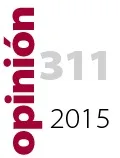Tunisia: The EU Must Put its Money Where its Mouth Is

Francis Ghilès, Associate Senior Researcher, CIDOB
March 20, 2015 / Opinión CIDOB, nº. 311 / E-ISSN 2014-0843
The NATO-backed intervention in Libya in 2011 was “a huge mistake on the part of the international community and the Libyans” one of alliance’s most senior officials told a delegation of senior Algerians in Brussels last month. One of the unforeseen consequences of the intervention was that tens of thousands of weapons and military vehicles belonging to the Libyan dictatorship fell into the hands of local tribesmen, private people and different militias and quickly ended up in the hands of hard line salafi groups. The chaotic collapse of Libya allowed jihadi groups to overrun northern Mali thus forcing a French military intervention. It also pushed up to 1.6m refugees into neighbouring Tunisia, 1m of whom were Libyan. Over 500,000 of them remain in Tunisia today. The international community, in particular the United Nations, has done virtually nothing to help a country which was already struggling to contain the political, social and economic fallout of its own revolt which, earlier that year, toppled Ben Ali’s dictatorship.
It would be churlish to argue that the murderous attack on foreign tourists visiting the Bardo Museum, part of a historical palace complex lying on the outskirts of Tunis and which also houses the National Assembly, was solely the result of the chaos into which Libya has descended but it is without doubt one of its unintended consequences. Tunisia has lost control of its southern border to ever more violent groups of smugglers; its army is working closely with its Algerian counterpart to contain small groups of terrorists who are well entrenched in the Chambi mountains on the border between the two countries -between the Tunisian town of Kasserine and the Algerian town of Tebessa. Since violent crowds attempted to burn the US embassy in September 2012 and two leading left wing deputies were assassinated in 2013, many Tunisians were increasingly apprehensive of the terrorist cells which they knew existed in the capital. They were discomfited by the estimated 3000 Tunisians who had gone to Syria and Iraq to fight for what they deem to be a holy war, a state of affairs the Islamist governments which rule Tunisia in 2012 and 2013, choose, for a long time, to turn a blind eye to.
Tunisia is today the lynchpin in the security of the central part of the Mediterranean. Europe and the US can ill afford to see the chaos in Libya spread west. The Libyan coast is in the hands of countless militias who are complicit in pushing hundreds of thousands of illegal immigrants across the Mediterranean towards the shores of southern Italy. They often drown before they reach their destination. What Tunisia needs today is a broad UN lead rescue plan and as much help it can get to seal its south eastern border. It needs help in training its quick intervention forces, locally known as SWAT, which did a good job during this week’s outrage. This help should come from the UN, NATO, the European Union and individual European states. It should be open ended, whatever the cost.
Be it training, weapons or sharing intelligence, the EU and NATO must offer the Tunisian army, Garde Nationale all the help it can. After the fall of Ben Ali, political turmoil did not allow for major reforms in the police. The newly appointed government lead by Habib Essid can count on the army, which unlike its Arab peers did not repress those who took to the streets against Ben Ali and on the Garde Nationale which was far less compromised with the former dictator than the police. The newly elected president, Beji Caid Essebsi knows he can count of the solidarity of neighbouring Algeria, a country which has suffered the consequences of jihadi terrorism and whose diplomats are playing an active role in trying to bring the warring parties to the Libyan conflict to the negotiating table.
A second and equally important aspect of the help is financial and economic. Although economic activity has help up reasonably well in the turmoil of recent years, the country’s foreign debt has increased, its foreign balances have deteriorated, foreign investment has dropped and prices of staples have increased. The new government has yet to announce its economic programme. M Essid could do worse than to speed up matters on this point. Western leaders should remember that Tunisia is unlikely to recover the bulk of property, shares and gold that the Ben Ali clan salted away in France, Switzerland and the US. The credibility of the West’s foreign policy, of the ethical and democratic principles it repeatedly proclaims, would be greatly strengthened were it to support Tunisia’s economy to the tune of $15bn over the next four years with a mixture of loans, investment and, why not, a measure of debt write off.
Finally, the UN and the European Union should not be allowed to forget that Tunisia is neither a religious nor a military autocracy, something of an oddity in the Middle East today. Its path towards pluralism has been bumpy but this is an exceptional southern rim Mediterranean country. It boasts a thriving middle class, attracts over 6m foreign tourists annually and hosts thousands of foreign companies. It was the first Arab country to give women equal rights, in 1956, well before France, Spain and Italy. It has enjoyed close links with Europe for centuries. Its then ruler granted his people the first modern constitution in the Arab world in 1861, twenty years before the French colonised the country. European and American political leaders today behave as if history started the day they reached office: where Tunisia is concerned, the historical context, the country’s pressing needs, our own vital interests and, dare one say, mistakes, all plead for strong support. Will Europe’s deeds, for once, live up to its oft proclaimed ambitious?